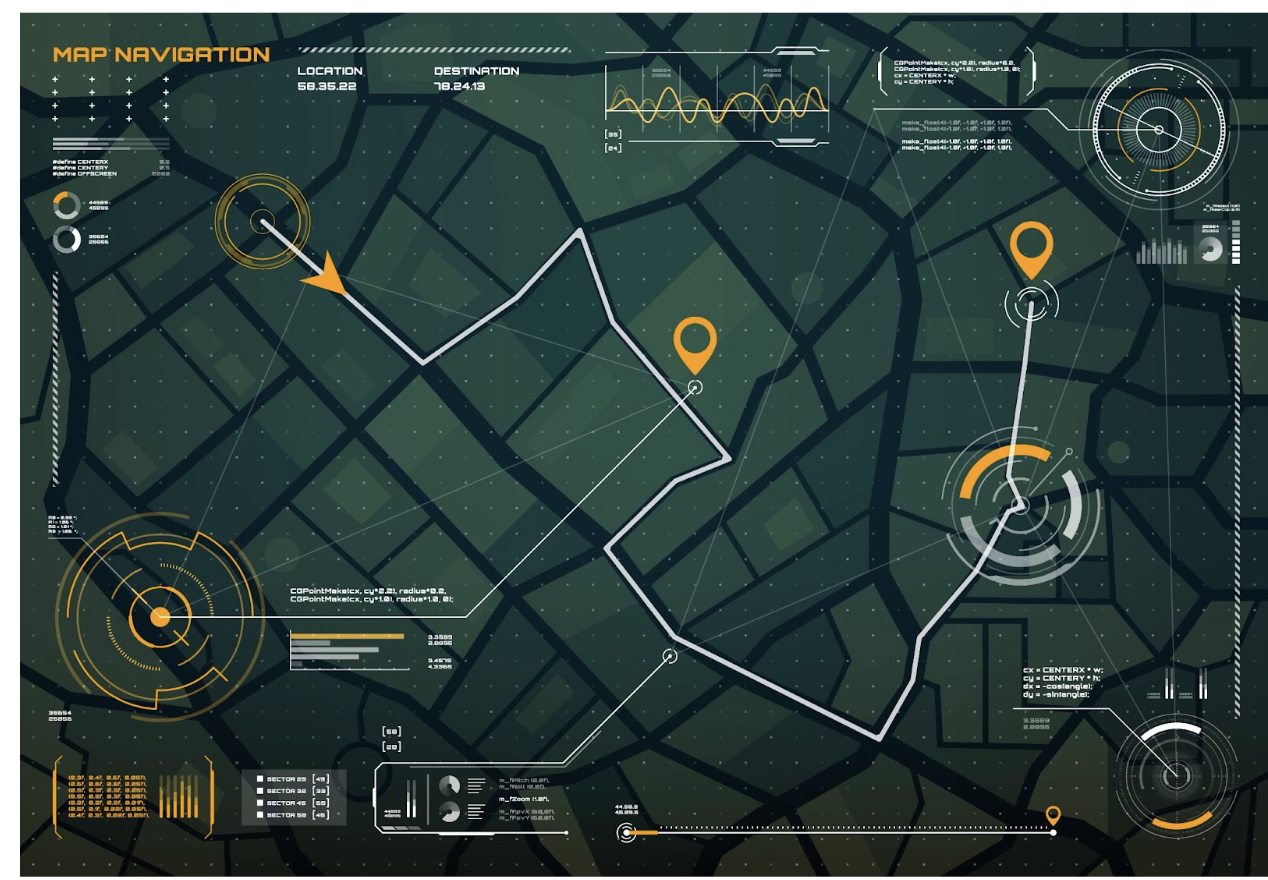Precision in delivery addresses enables faster and more seamless fulfillment cycles.
Location Intelligence: A game-changer for logistics operations
From Final Mile to Final Inch Logistics

The August 2023 edition of Inbound Logistics magazine carried a cover story on ‘Last-Inch logistics’, which shed light on the intricacies of logistics operations with a microscopic view of the final mile to the final inch. This is a very relevant area to focus on with 10-minutes and under deliveries becoming the new normal and there’s an increased need for precision in predicting SLAs for deliveries.
To manifest the idea of final-inch, one needs not just an awareness of a whole set of attributes ranging from traffic information to geospatial data, but at new levels of precision. This can happen only with the help of highly advanced location intelligence tools which will define the new era in logistics where location intelligence is more than just a good to have.
Key takeaways:
- Definition: Location intelligence is the ability to identify geographical information pertaining to an entity.
- Purpose: With location intelligence, businesses can adopt an efficient, consistent and reliable method to manage location data.
- Impact on businesses: A few operational areas where location intelligence can help are: route optimization, enhancing customer experience with better personalization, better compliance and risk management, and strategic business decisions.
What is Location Intelligence?
Location intelligence is the ability to identify geographical information pertaining to an entity. In the context of logistics operations, it is intelligence pertaining to customer location based on which a variety of business challenges can be identified and addressed. This is built with the help of collecting data at multiple levels - vehicles, shipments, personnel - including fleet, customer locations, and several more. Businesses can understand underlying relationships based on location and unearth deep actionable insights to drive critical decisions.
This is significant in so many ways to businesses. In terms of optimizing fleet utilization, these location insights can help improve routes, optimize time windows for each delivery based on contextual information - like number of floors, the distance from parking, wait times at gates, traffic conditions etc. From a customer experience standpoint, it helps them achieve improved personalization, deliver experiences with predictability.
Why is Location Intelligence Needed?
Address is a contextual entity. It also is dynamic in nature in many ways. It goes through changes with time due to multiple factors and at times, it affects the structure, format and its relevance. Businesses are generally not known to have standard processes to keep addresses updated. Although there are initiatives like KYC, which are largely at the time of initial onboarding, they aren’t updated from time to time. Thus, addresses become outdated or obsolete in a given timeframe. As long as they are in use, there is a degree of familiarity with field staff/drivers. However, this increases the dependence on the ‘tribal knowledge’ of drivers. However, this is not ideal because there is no way to consolidate this information and put it to use on an ongoing basis.
This leads to a scenario where drivers tend to become the solitary interface between the customers and businesses(in the context of location). While it can be advantageous in some ways, there are external factors that are causing this to change. With a tumultuous degree of changes within the driver ecosystem with emerging trends such as gig-economy fleet, driver crowdsourcing platforms and so on, there is an inherent threat to relying too much on tribal knowledge of drivers. There has to be a more efficient, consistent and reliable method to manage location data for businesses, one which is constantly evolving. This is exactly where a Location Intelligence Solution assumes a massive importance.
How Businesses Can Leverage Location Intelligence
Optimizing Route Planning and Fleet Management
One of the most direct impacts of location intelligence on logistics operations is seen in route planning and fleet management. Traditionally, planning the most efficient routes for delivery vehicles was known to be a daunting task, often relying on manual estimations and assumptions. This approach often can lead to suboptimal routes, wasted fuel, and increased delivery times.With route optimization enhanced with location intelligence, businesses can up their routing efficiency. This not only reduces fuel consumption and operational costs but also enhances on-time delivery performance.
Elevating Customer Experiences
In today's competitive landscape, customer experience is a key differentiator for businesses. Location intelligence plays a significant role in enhancing customer satisfaction by providing accurate delivery estimations and real-time tracking updates. Customers can receive notifications about the status and location of their orders, empowering them with information and reducing anxiety associated with uncertainty.
Additionally, location intelligence enables businesses to improve personalization based on geographic data. For instance, businesses can analyze customer demographics and preferences in specific areas to tailor promotions, product offerings, and delivery options, thereby creating a more engaging and customer-centric experience.
Mitigating Risks and Ensuring Compliance
In logistics, risks abound – from theft and accidents to regulatory compliance issues. Location intelligence can be a powerful tool in mitigating these risks. By tracking the movement of shipments and vehicles, businesses can implement proactive security measures to prevent theft and ensure the safety of valuable cargo.
Furthermore, location intelligence can also be leveraged by fintech and lending companies to assess risk based on location data. This helps in tailoring different products and services to different areas based on risk profile. It also can be of great use in KYC initiatives(Know Your Customer) for banking and financial services.
Predictive Analytics for Strategic Decision-Making
The transformative potential of location intelligence lies not only in its ability to provide real-time insights but also in its predictive capabilities. By analyzing historical location data, businesses can identify trends and patterns that can inform strategic decision-making. For example, businesses can use predictive analytics to anticipate demand fluctuations in different regions, enabling them to adjust inventory levels and distribution strategies accordingly.
Moreover, location intelligence can help businesses make informed decisions about expanding to new markets or optimizing their distribution network. By analyzing geographical data, businesses can identify underserved areas and evaluate the feasibility of setting up new distribution centers or retail outlets.
COD & Returns in eCommerce
Location intelligence can help eCommerce businesses make better decisions for providing cash on delivery options based on the profile of a location. There could be instances where CoD orders get continuously returned or not accepted and in due course, a decision on whether to provide the option in the first place can be made.
It also helps in predicting the returns rates based on location. These are significant areas of potential cost-cutting for eCommerce businesses.
The Bottomline
With the industry entering a new era of final-inch logistics driven by accuracy and precision, location intelligence can be a potential game-changer for businesses. Location intelligence tools have the potential to elevate customer experience for businesses with improved service quality, speed and predictability.
To learn more about how you can leverage OS1’s location intelligence capabilities, click here.



